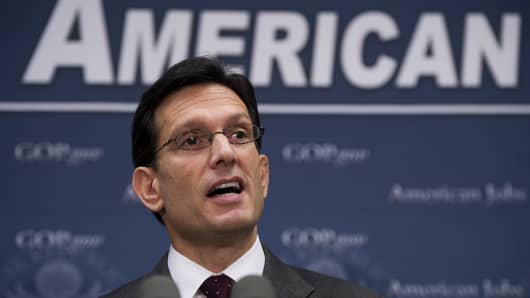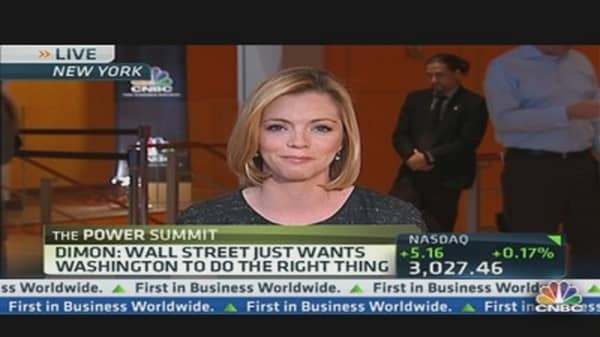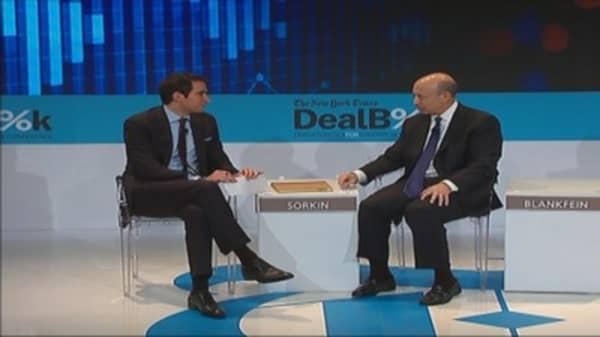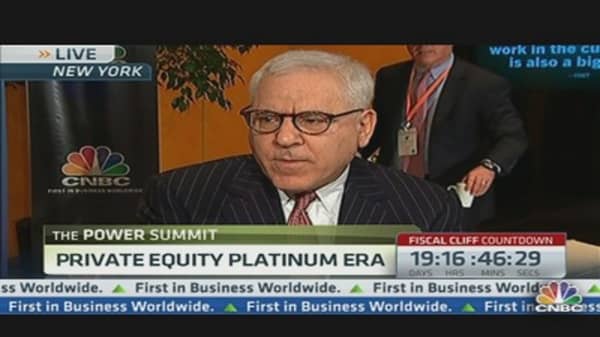Talks to avoid the "fiscal cliff" showed little progress on Wednesday, with Republicans publicly rebuking the Obama administration and one House member saying "it's getting worse, not better."
At a morning briefing, House Majority Leader Eric Cantor lashed out at President Barack Obama, saying "let's stop playing games" and present a proposal to cut entitlement spending. But House Democratic leader Nancy Pelosi warned Republicans against raising the Medicare eligibility age to 67. "Don't go there," she said.
"We ask the president to please sit down with us and be specific and let's get that balanced plan" of revenue increases and spending cuts, Cantor said. "There's an inconsistency here and let's stop playing games."
Cantor made his statement in an appearance with Republican House Speaker John Boehner, who also accused Obama of not presenting a plan to cut spending. "Frankly that's why we don't have a plan today" to solve the "fiscal cliff."
Their statements came as the clock ticked toward the end-of-year deadline to avoid the automatic spending cuts and tax increases that could throw the economy back into recession. (Read More: 'Cliff' Plans Exchanged; Reid: Deal Unlikely by Christmas! )
Despite the stalemate, stocks rose. (Read More: Stocks Rise After Fed Decision, Led by Banks ),
Two Wall Street titans, meanwhile, urged Washington to settle their differences. "Let's just do it," JPMorgan Chase CEO Jamie Dimon said. (Read More: ' Let's Just Do It,' Dimon Says of Avoiding 'Cliff'). And Goldman Sachs CEO Lloyd Blankfein said he was optimistic a deal would be reached.
Higher taxes are a medicine we can't turn away," he said. Both CEOS made their comments at the New York Times DealBook conference. (Read More: Investors Face 'Big Risk' With Rates: Blankfein .)
(Read More: Wall Street Worries Washington Will Wreck Economy: CNBC Survey.)
Boehner and Obama spoke on the phone Tuesday, a day after the president offered to reduce his initial demand for $1.6 trillion in higher tax revenue over a decade to $1.4 trillion. But Obama continued to insist that much of the revenue come from raising top tax rates on the wealthy. Boehner countered with another offer that aides to the Ohio Republican said stuck close to a document delivered to the White House a week ago. A top White House aide, Rob Nabors, came to the Capitol to respond.
A Democratic official said Boehner's counteroffer included permanent extension of all Bush-era tax rates for all taxpayers, including the top 2 percent of earners, the same as his earlier proposal.
"The president and I had a deliberate call yesterday and we spoke openly about the differences we face," Boehner told reporters Wednesday. "The president has called for $1.4 trillion dollars in revenue, that cannot pass the House or the Senate."
Boehner added: "I was born with a glass half full. I remain the most optimistic person in this town, but we got some serious differences."
He told the House GOP Conference not to make any serious plans around or after Christmas.
Leading lawmakers expressed pessimism that a deal was close, despite increasing angst about a Dec. 31 deadline to stop the expiration of Bush-era tax cuts and separate across-the-board spending cuts that are the result of Washington's failure to complete a deficit-reduction deal last year.
"I think it's getting worse, not better," House GOP Whip Kevin McCarthy, R-Calif., said.






